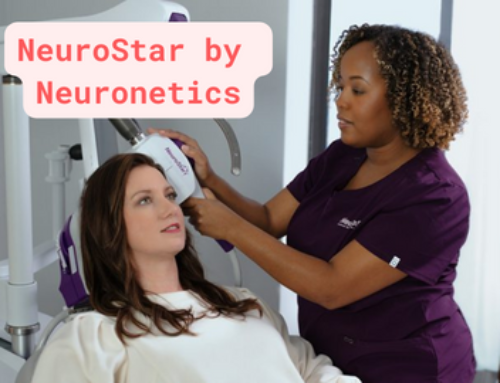Back to Basics
Sometimes it helps to have a refresher. Today we’re going to go over the basics of TMS and the most common questions we receive about this treatment. We’ve included plenty of links to other parts of our site for more information on each point.
What Does TMS Mean?
TMS stands for transcranial magnetic stimulation. It is a form of non-invasive neuromodulation therapy approved by the FDA in 2008.
What Does TMS Do?
TMS is used to treat treatment-resistant MDD (major depressive disorder). “Treatment-resistant” refers to MDD that has previously been treated with conventional methods like medication, talk therapy, etc. but these methods have never produced the desired effects or are no longer effective.
How is TMS Done?
TMS treatments take place in a doctor’s office and are administered by a physician. During treatment, the patient sits in a chair and an electromagnetic coil is applied to the patient’s scalp, particularly the front of the cranium to stimulate the areas of the brain connected with mood regulation and stimulus response.
What is the Time Commitment for TMS?
Each patient is different, and schedules will vary depending on the patient’s needs. TMS sessions usually last 30-45 minutes and most treatment plans go on for 4-6 weeks with the patient in the office 5 days a week. Treatment plans are closely monitored, and adjustments may be made depending on results.
What are the Side Effects of TMS?
Many patients feel nothing except a slight vibration from the TMS machine and a light tapping sensation from the electromagnetic pulses. Some report side effects like a tingling or scratching sensation that is not painful and lasts only a few minutes after the treatment session ends.
Possible side effects like headaches and seizures have been identified as possible by medical researchers. These are highly unlikely but must be mentioned for due diligence. Patients who suffer seizures or have any metal implants in their bodies are not eligible for TMS for safety purposes.
Does TMS Work?
TMS therapy has a positive track record for improving the lives of patients with treatment-resistant MDD. We stay on top of the latest developments in neuromodulation research so that we can always offer the highest quality treatment methods with state-of-the-art equipment.
Is TMS Covered by Insurance?
TMS is currently covered by major medical insurance for treating major depressive disorder only. Much research is still underway to determine what effects TMS might have on other mental ailments like bipolar disorder. We feel hopeful that one day we may be able to expand our TMS services to include illnesses not defined as MDD.
Always Ready to Talk
Contact us if you have questions, check out our blog, and take a look at our services page. We want every patient to be informed, involved, and confident in their treatment plan.





